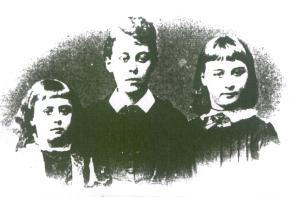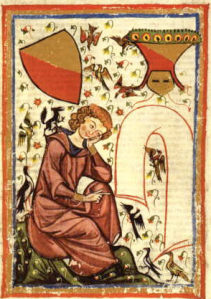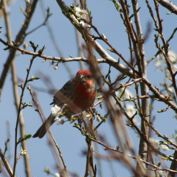
Charlotte Mew (November 15 1869 - March 24 1928)
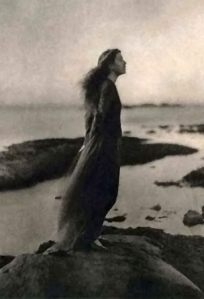
On the Road to the Sea.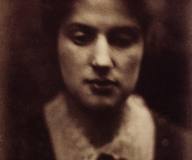
We passed each other, turned and stopped for half an hour, then went our way,
I who make other women smile did not make you–
But no man can move mountains in a day.
So this hard thing is yet to do.
But first I want your life:–before I die I want to see
The world that lies behind the strangeness of your eyes,
There is nothing gay or green there for my gathering, it may be,
Yet on brown fields there lies
A haunting purple bloom: is there not something in grey skies
And in grey sea?
I want what world there is behind your eyes,
I want your life and you will not give it me.
Now, if I look, I see you walking down the years,
Young, and through August fields–a face, a thought, a swinging dream
perched on a stile–;
I would have liked (so vile we are!) to have taught you tears
But most to have made you smile.
To-day is not enough or yesterday: God sees it all–
Your length on sunny lawns, the wakeful rainy nights–; tell me–;
(how vain to ask), but it is not a question–just a call–;
Show me then, only your notched inches climbing up the garden wall,
I like you best when you are small.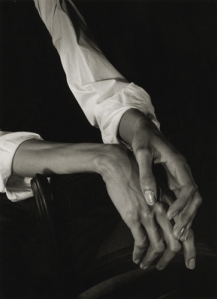
Is this a stupid thing to say
Not having spent with you one day?
No matter; I shall never touch your hair
Or hear the little tick behind your breast,
And as a flying bird
Brushes the branches where it may not rest
I have brushed your hand and heard
The child in you: I like that best
So small, so dark, so sweet; and were you also then too grave and wise?
Always I think. Then put your far off little hand in mine;–
Oh! let it rest;
I will not stare into the early world beyond the opening eyes,
Or vex or scare what I love best.
But I want your life before mine bleeds away–
Here–not in heavenly hereafters–soon,–
I want your smile this very afternoon,
(The last of all my vices, pleasant people used to say,
I wanted and I sometimes got–the Moon!)
You know, at dusk, the last bird’s cry,
And round the house the flap of the bat’s low flight,
Trees that go black against the sky
And then–how soon the night!
No shadow of you on any bright road again,
And at the darkening end of this–what voice? whose kiss? As if you’d say!
It is not I who have walked with you, it will not be I who take away
Peace, peace, my little handful of the gleaner’s grain
From your reaped fields at the shut of day.
Peace! Would you not rather die
Reeling,–with all the cannons at your ear?
So, at least, would I,
And I may not be here
To-night, to-morrow morning or next year.
Still I will let you keep your life a little while,
See dear?
I have made you smile.

I started out to make this post with the idea that it would be of a single poem by Charlotte Mew, but that turned out not to be the case. I chose ‘On the Road to the Sea’ because of its largeness of scope, its inclusiveness of themes which fascinate and captivate me, and its psychological complexity. I had foolishly thought that it would be possible to sort it out with a couple or three careful and thoughtful readings, but that too turned out very much not to be the case.
case. I chose ‘On the Road to the Sea’ because of its largeness of scope, its inclusiveness of themes which fascinate and captivate me, and its psychological complexity. I had foolishly thought that it would be possible to sort it out with a couple or three careful and thoughtful readings, but that too turned out very much not to be the case.
I had an unexpectedly difficult time meeting my simplest requirement for a poem, which is that I should be able to rewrite it to have ordinary prose sense. My next requirement – one which I have adopted from Robert Graves – is that I should be able to compress its meaning as in a telegram, and not have very much left over; this I abandoned because I did not wish to create a parody of over-simplification. Besides, telegrams are of course now  a relic of the past. Mew’s poems too appear to have gone the way of the telegram and fallen into what might seem to be an irremediable desuetude.
a relic of the past. Mew’s poems too appear to have gone the way of the telegram and fallen into what might seem to be an irremediable desuetude.
But trying to unravel all the hidden implications and the ‘between the lines-ness’ of Mew’s poetry might well be an impossible task. So much of the meaning — such as “As if you’d say ” — comes with spoken inflection, and there are the parts of the poem where the Is and yous seem to snake between each other and switch places. The central word in the poem, “Life,” too, seems to carry a meaning that is quite different from the meaning suggested in the phrases in which it embeds itself.
And yet, this is truly a Muse poem. Strange homonymnical coincidence that — and also the fact that without the vertical stroke of the ‘E,’ Mew’s name reads the same both upside down and side to side.
Here is my attempt at a prose paraphrasal:
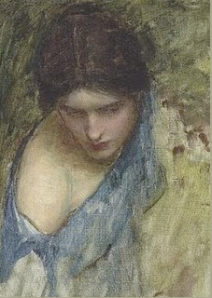 We ran into each other and after a brief conversation went our separate ways. I found that even though I can make most women smile, I couldn’t make you. I would like to make you smile, but before I set myself such a difficult task I want your life. I want to know your inner world — even though it seems like a world that is without life except perhaps for a single “haunting purple bloom”.
We ran into each other and after a brief conversation went our separate ways. I found that even though I can make most women smile, I couldn’t make you. I would like to make you smile, but before I set myself such a difficult task I want your life. I want to know your inner world — even though it seems like a world that is without life except perhaps for a single “haunting purple bloom”.
Yet you will not give me this .
I can see into your past, and see you as a child, and even though it seems cruel of me, I would have liked to have taught you to cry (that is to feel) but more than that I would have liked to have made you happy.
The past is the past, and this is the present, and neither is enough — but god sees both: your childhood days, and how you grew – I like you best as a child.
Is this stupid of me to contemplate when I have not even spent a day with you?
I will never know the intimate things about you — how it feels to touch your hair or hear your heartbeat or do more than brush your hand with mine.
I can imagine you as a beautiful child — small, dark, sweet, grave and wise.
I wish we could have held each other’s hands then.
I won’t pry to deeply into your childhood because I don’t want to upset you. But I want to know you before my own life bleeds 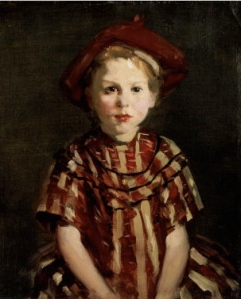 away. I want to know you here on earth – I want you now – I want the impossible, because I have sometimes found it to be possible….
away. I want to know you here on earth – I want you now – I want the impossible, because I have sometimes found it to be possible….
You know how soon the days pass, and the days of our lives pass, from evening into night, and how soon life will be over.
You will have slipped away from this world not even leaving a shadow behind — and when you die then — what will become of your voice? Who would have had your kiss? I know you will not answer this question. But I will not be the one who takes away – I who who have only the barest scantiest smallest handful of grain from your life’s fields after they have been harvested at the end of your life.
Wouldn’t you rather die in the midst of all the trouble and conflict of life? I know I would — and I might not live beyond this moment — but still, I want to hold your life in my heart and in my thoughts at least for now. I will let you have your secrets…
And I have made you smile ruefully at the sheer presumption of my claim!

 Mew seems to be toying with her reader when she makes the claim “I want your life”. And yet, far from being preposterous, her assertion is modest and humble. She is not claiming the power of life and death over her beloved — far from it — she is saying she wants the beloved to live — to come to life — and she wants to know about the portion already lived of her beloved’s life. She has sensed an aridity and a greyness behind the grave unsmiling face, and she wishes to animate it — to revitalise it, to vivify it.
Mew seems to be toying with her reader when she makes the claim “I want your life”. And yet, far from being preposterous, her assertion is modest and humble. She is not claiming the power of life and death over her beloved — far from it — she is saying she wants the beloved to live — to come to life — and she wants to know about the portion already lived of her beloved’s life. She has sensed an aridity and a greyness behind the grave unsmiling face, and she wishes to animate it — to revitalise it, to vivify it.
There is more than an echo here of John Donne’s ‘The Flea’ and Andrew Marvell’s ‘Ode to His Coy Mistress’. Mew would never be so bold as to make such straightforward heterosexual assertions, but her message is no less clear than theirs. She does not wish to alarm the woman to whom this poem is addressed: I hear her use of the words “peace, peace” as someone would who is trying to calm a skittish animal. She is using extraordinarily gentle means to bring someone back to life from the brink of emotional death — someone she feels may have already surrendered to a death of the heart.
In order to do this she has to raise her hand and point a finger at the spectre of death itself, but to do so in a quiet and unstartling way. It is a difficult task, because sometimes the only way to bring the nearly dead back to life is to shock them into living.
Then again, it is possible that Mew may have wished there was someone to speak these words to her – and that the “I” in this poem is someone else – and she herself the unsmiling one. The only photograph of Mew as an adult shows a slender unsmiling woman in soberly tailored dark suit. The dark bow at her throat seems as unlike a frippery as it is possible to be.
poem is someone else – and she herself the unsmiling one. The only photograph of Mew as an adult shows a slender unsmiling woman in soberly tailored dark suit. The dark bow at her throat seems as unlike a frippery as it is possible to be.
When she committed suicide at the age of 59, Mew had come to the end of her endurance. The third oldest of seven children of an architect who died without providing for his family, she lost three brothers while they were children. A brother and sister were committed to a mental asylum, and Mew and her sister Ann feared that they too would share a similar fate.
Mew’s mother died in 1924, and Ann died in 1927. Tormented by the thought that her sister Ann had been buried alive, Mew seemed to have felt her sanity beginning to unravel. She had neglected to leave instructions for a vein to be opened on Anne prior to burial, as a means of ensuring that there was no risk of a live burial. The gathering impetus of intense grief and guilt complicated by deep depression led her to be committed – or commit herself – to an institution. Under these grim and dismal conditions, Mew went  out and bought the bottle of Lysol – a corrosive cleaning agent containing a lethal amount of creosote – which she drank in order to kill herself. Mew had wished that her work be destroyed at her death. During her life she had used her manuscripts in order to light her cigarettes, but fortunately for us, her publications and some of her unpublished work survived her.
out and bought the bottle of Lysol – a corrosive cleaning agent containing a lethal amount of creosote – which she drank in order to kill herself. Mew had wished that her work be destroyed at her death. During her life she had used her manuscripts in order to light her cigarettes, but fortunately for us, her publications and some of her unpublished work survived her.
The elusiveness of obvious meaning, and even what might have seemed a willful incomprehensibility in some of her poems – ‘The Road to the Sea’ might be an example – seem to have caused confusion in some of Mew’s readers even during her own lifetime, when the common standard of English literacy and literary understanding was much higher than it is today. Certainly her poems did not conform to the simple clarity of ordinary speech. But even a contemporary reader with exposure to a century of intervening poetry might find find Mew’s poems difficult to work out, not because they lack sense (as most modern poetry does) but because the sense is so cleverly devised and arranged. It makes one wonder if one of the reasons Mew’s work is still so deplorably neglected today is that most of us who read poetry have grown accustomed to the idea that it is not meant to make sense – so that when the sort of sense which only yields itself to persistent and dilligent effort is encountered, it is taken for nonsense.
Mew’s lifelong penury was relieved to a small degree by the pension she was awarded through the good offices of Thomas Hardy,  John Masefield and Walter De La Mare. Hardy’s memory must be blessed for this if for no other reason — he was a good and faithful benefactor to his impecunious friends (one of whom was Robert Graves) in their times of need. Mew had many admirers amongst the illustrious literati: Virginia Woolf called her “the greatest living woman poet,” and Thomas Hardy said she was “far and away the best living woman poet of the day”. Mew was respected and admired by John Masefield, May Sinclair (for whom Mew cherished an unrequited love) Walter De La Mare, Virginia Woolf, Thomas Mann, Rebecca West, Sigfried Sassoon, Vita Sackville West and Louis Untermeyer.
John Masefield and Walter De La Mare. Hardy’s memory must be blessed for this if for no other reason — he was a good and faithful benefactor to his impecunious friends (one of whom was Robert Graves) in their times of need. Mew had many admirers amongst the illustrious literati: Virginia Woolf called her “the greatest living woman poet,” and Thomas Hardy said she was “far and away the best living woman poet of the day”. Mew was respected and admired by John Masefield, May Sinclair (for whom Mew cherished an unrequited love) Walter De La Mare, Virginia Woolf, Thomas Mann, Rebecca West, Sigfried Sassoon, Vita Sackville West and Louis Untermeyer.
It is a judgement of our undiscerning times that Mew is so little known in our day. When I look at her image – this extremely petite (she was 4’10” tall) woman with arresting features, in her dark tweed coat, and a strong pale right hand firmly grasping its lapel – I mourn her obscure brilliance and her unhappy life. Mew herself was at considerable pains to ensure that not much biographical material would survive her. I think only only one photograph of her exists.
“Dead is dead, but that is why memory is all and all the immortality there is” wrote Gertrude Stein in The Making of Americans, and if indeed she is right, we have a solemn obligation to remember Charlotte Mew.

Here are four more of Mew’s Poems.
The Peddler
Lend me, a little while, the key
That locks your heavy heart, and I’ll give you back–
Rarer than books and ribbons and beads bright to see,
This little Key of Dreams out of my pack.
The road, the road, beyond men’s bolted doors,
There shall I walk and you go free of me,
For yours lies North across the moors,
And mine lies South. To what seas?
How if we stopped and let our solemn selves go by,
While my gay ghost caught and kissed yours, as ghosts don’t do,
And by the wayside, this forgotten you and I
Sat, and were twenty-two?
Give me the key that locks your tired eyes,
And I will lend you this one from my pack,
Brighter than colored beads and painted books that make men wise: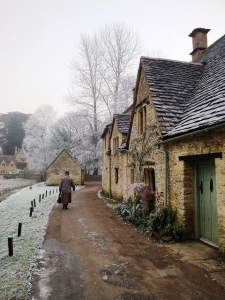
Take it. No, give it back!
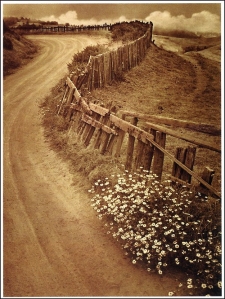
The Changeling:
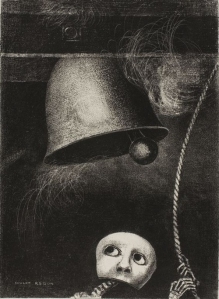

Toll no bell for me, dear Father dear Mother,
Waste no sighs;
There are my sisters, there is my little brother
Who plays in the place called Paradise,
Your children all, your children for ever;
But I, so wild,
Your disgrace, with the queer brown face, was never,
Never, I know, but half your child…
Sometimes I wouldn’t speak, you see,
Or answer when you spoke to me,
Because in the long, still dusks of Spring
You can hear the whole world whispering;
The shy green grasses making love,
The feathers grow on the dear grey dove,
The tiny heart of the redstart beat,
The patter of the squirrel’s feet,
The pebbles pushing in the silver streams,
The rushes talking in their dreams,
The swish-swish of the bat’s black wings,
The wild-wood bluebell’s sweet ting-tings,
Humming and hammering at your ear,
Everything there is to hear
In the heart of hidden things.
But not in the midst of the nursery riot,
That’s why I wanted to be quiet,
Couldn’t do my sums, or sing,
Or settle down to anything.
And when, for that, I was sent upstairs
I did kneel down to say my prayers;
But the King who sits on your high church steeple
Has nothing to do with us fairy people!
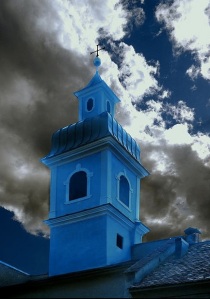
The Farmer’s Wife


Three Summers since I chose a maid,
Too young maybe – but more’s to do
At harvest-time than bide and woo.
When us was wed she turned afraid
Of love and me and all things human;
Like the shut of a winter’s day.
Her smile went out, and ’twasn’t a woman–
More like a little, frightened fay.
One night, in the Fall, she runned away.
“Out ‘mong the sheep, her be,” they said,
‘Should properly have been abed;
But sure enough she wasn’t there
Lying awake with her wide brown stare.
So over seven-acre field and up-along across the down
We chased her, flying like a hare
Before our lanterns. To Church-Town
All in a shiver and a scare
We caught her, fetched her home at last
And turned the key upon her, fast.
She does the work about the house
As well as most, but like a mouse:
Happy enough to chat and play
With birds and rabbits and such as they,
So long as men-folk stay away.
“Not near, not near!” her eyes beseech
When one of us comes within reach.
The women say that beasts in stall
Look round like children at her call.
I’ve hardly heard her speak at all.
Shy as a leveret, swift as he,
Straight and slight as a young larch tree,
Sweet as the first wild violets, she,
To her wild self. But what to me?
The short days shorten and the oaks are brown,
The blue smoke rises to the low gray sky,
One leaf in the still air falls slowly down,
A magpie’s spotted feathers lie
On the black earth spread white with rime,
The berries redden up to Christmas-time.
What’s Christmas-time without there be
Some other in the house than we!
She sleeps up in the attic there
Alone, poor maid. ‘Tis but a stair
Betwixt us. Oh, my God! – the down,
The soft young down of her; the brown,
The brown of her – her eyes, her hair, her hair!
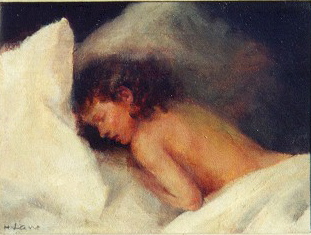
The Call.

From our low seat beside the fire
Where we have dozed and dreamed and watched the glow
Or raked the ashes, stopping so
We scarcely saw the sun or rain
Above, or looked much higher
Than this same quiet red or burned-out fire.
Tonight we heard a call,
A rattle on the window pane,
A voice on the sharp air,
And felt a breath stirring our hair,
A flame within us: Something swift and tall
Swept in and out and that was all.
Was it a bright or a dark angel? Who can know?
It left no mark upon the snow,
But suddenly it snapped the chain
Unbarred, flung wide the door
Which will not shut again;
And so we cannnot sit here any more.
We must arise and go:
The world is cold without
And dark and hedged about
With mystery and enmity and doubt,
But we must go
Though yet we do not know
Who called, or what marks we shall leave upon the snow.
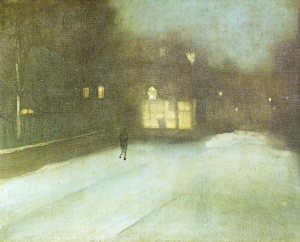
Here is a Greek translation of ‘On the Road to the Sea’ by Olvia Papaeliou from April 2000, which serves to show that Mew is still sufficiently beloved in other lands to rate the dedicated trouble of translating her poems.
Στο δρόμο για τη θάλασσα
Η μια την άλλη προσπεράσαμε, γυρίσαμε, σταθήκαμε λιγάκι
κι ύστερα συνεχίσαμε το δρόμο. Εγώ, που έκανα άλλες να γελούν,
δεν πήρα από σένα ούτ’ ένα τόσο δα χαμογελάκι,
μα σε μια μέρα μέσα δεν κουνήθηκαν βουνά,
πρέπει κανείς να περιμένει, για κάποια πράγματα, αρκετά.
Απ’ όλα πρώτα, θέλω τώρα τη ζωήσου’ πριν χαθώ,
τον κόσμο που ‘χεις στα παράξενά σου μάτια θέλω να δω.
Δεν έχει άνθη εύθυμα, πράσινα, να διαλέξω,
μα μέσα στα καφέ χωράφια, ίσως ένα μοναχά πορφυρό ανθάκι να συλλέξω.
Υπάρχει πάντα κάτι όμορφο θαρρώ
στη γκρίζα θάλασσα, στο σκούρο ουρανό.
Να δω τον κόσμο στη ματιά σου δε μ’ αφήνεις
και τη ζωή σου θέλω, μα δε μου τη δίνεις.
Τώρα, πίσω στα χρόνια αν ψάξω,
θα σε βρω στ’ Αυγούστου το χωράφι νεαρή.
Το πρόσωπο, τις σκέψεις σου, είσαι παλλόμεν’ όνειρο σε φράχτη κουρνιασμένο,
θάθελα, η φαύλη, τ’ όμορφο το πρόσωπο σου δακρυσμένο,
μα πιο πολύ θα ήθελα να σ’ είχα γελαστή.
Το τώρα δε μου φτάνει, ούτε το χτες,
μα παντεπόπτης είναι μόνο ο Θεός.
Το μάκρος σου στη χλόη, μες στο φως,
τις βροχερές, τις άγρυπνες νυχτιές.
Πες μου, κι ας είναι μάταιο που ρωτώ,
τις εγκοπές στον τοίχο, σου ζητώ,
που σκαρφαλώνοντας δείχνανε να ψηλώνεις•
τις εγκοπές του τοίχου σου, εκεί…
Σε προτιμώ όπως ήσουνα μικρή.
Θα φαίνεται αυτό που λέω χαζό –
ούτε μια μέρα δε σε έχω ζήσει εγώ…
Δε με πειράζει. Δε θ’ αγγίξω τα μαλλιά σου
ούτε θ’ ακούω το χτύπο της καρδιάς σου
κι ας είν’ εκεί. Και σαν πουλί πετούμενο που φεύγει
και να καθήσει στα κλαδιά δε στέργει,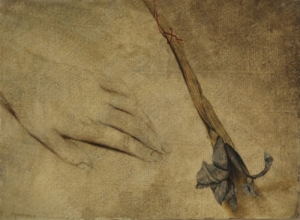
έτσι αγγίζοντας το χέρι σου εγώ
σ’ άκουσα: Το παιδί που ήσουν προτιμώ.
Μικρούλα, καστανή, γλυκειά…
Κι ήσουνα πάντα τόσο σοβαρή, βαρειά;
Πάντα, νομίζω. Μα έλα τότε, δώσε το χέρι το μικρό σου να κρατήσω
και μες το σύμπαν των ματιών σου δε θα εισδύσω.
Δε θέλω να τρομάξω ό,τι αγαπώ
ούτε θα ήθελα εσένα να ενοχλήσω.
Μα θέλω τη ζωή σου,
πριν φύγει η δική μου αιμορραγούσα,
τώρα, κι όχι στο ουράνιο κατόπιν,
ένα χαμόγελο δικό σου ν’ αποσπούσα.
Το πιο τρελλό μου πάθος, κάποιοι είχανε πει,
ήταν να θέλω τη Σελήνη, κάποιες φορές την είχα βρει.
Ξέρεις, στο σούρουπο ενός πουλιού τραγούδι τελευταίο,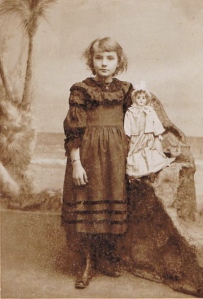
στο σπίτι γύρω νυχτερίδας πέταγμα,
μαύρα τα δέντρα, φόντο ο ουρανός,
κι ύστερα της νυχτιάς σκοτείνιασμα μοιραίο.
Ποτέ πια τη σκιά σου δε θα δω
ξανά σε κάποιο δρόμο φωτεινό.
Στην άκρη τούτου ‘δώ τη σκοτεινή,
ποιανού φωνή, ποιανού φιλί σε περιμένει;
Λες και ποτέ θα μου ‘χες πει.
Δε θάναι το δικό μου το φιλί,
όχι εγώ, κι ας περπατήσουμε μαζί
δε θάν’ η χούφτα η δική μου με καρπούς
που απ’ το χωράφι σου θα είναι μαζεμένοι.
Ησύχασε… Μα δε θα προτιμούσες να πεθαίνεις
κάτω από βρόντους κανονιών,
αντί άλλον να έχεις κι όχι εμένα;
Εγώ, αλήθεια λέω, θα προτιμούσα!
Ακόμα κι αν δεν ήμουν τώρα εδώ,
σήμερα, αύριο, τη χρονιά που μπαίνει…
Ωστόσο τη ζωή δε σου αφαιρώ,
μα παραδέξου το σε μένα, αγαπημένη,
πως να γελάσεις σ’ έκανα, μπορούσα.
μετάφραση: Όλβια Παπαηλιού
– Οδός Πανός – τχ. 108, Απρίλιος 2000
http://authorsandwriterstooktheirownlives.blogspot.com/2011/05/60.html
This is a poem by a poet to a poet – Elizabeth Bartlett to Charlotte Mew:

"Don't keep me, let me go." Charlotte Mew, last words.
Charlotte Mew *
Charlotte, to-day I walked along streets where you died,
That remote and desolate Spring of nineteen twenty-eight,
With Anne dead, Ma gone, and the other two immured inside
Some asylum still, or dead, but lost to you, all hate
Shadowed and masked and laid away, which ever way it was.
Charlotte, to-day the balustrated houses balanced in pity
Above the chimes of sunlight and waiting ambulances,
And all around, the soft and moulded web of your city
Hung like a shroud of sound, and the pigeons drank
From the gutters, nervously treading the sloping tiles.
Don’t keep me. Let me go, you said,
And I thought of the first sessions
Starting in the clinics, and the bread
For the day’s hunger in the ovens
Of the bakery, and the swirl of wings
Beating around the stained pillars
Of St. Marylebone church, and all the Springs
Which have restored to vogue or memory since then
Wavered and faded and dissolved until I saw you
As you went out alone and bought the disinfectant
Which killed you, Charlotte Mew, said to be a writer.
Don’t keep me. Let me go, you said,
And you lay with your small dead
Face turned to the grey light
On the blank brick wall.

* When her death was reported in the local Marylebone newspaper, she was casually described as “Charlotte Mew, said to be a writer” – from a memoir by Alida Munro.
And here are some important links. I regret that they are not ‘live’, but a ‘cut and paste’ will take you to their sites.

Charlotte Mew as a girl with her old nurse.
http://www.telegraph.co.uk/news/obituaries/2201071/Elizabeth-Bartlett.html
http://www.glbtq.com/literature/mew_c.html
http://www.carcanet.co.uk/cgi-bin/indexer?owner_id=486
http://www.guardian.co.uk/books/booksblog/2008/sep/01/poemoftheweekthefarmersb
http://www.poetryfoundation.org/bio/charlotte-mew
http://poemhunter.com/charlotte-mew/
Charlotte Mew in her own words.
(Superb resource)
http://www.studymore.org.uk/xmew.htm
Charlotte Mew Chronology
(extensive)
http://www.studymore.org.uk/ymew.htm#


Subscribers to the London Review of Books will find in Vol 24 No.10 23 May 2002 a fine article about Mew’s life and death entitled ‘The Death of a Poet’ by Penelope Fitzgerald.
http://www.lrb.co.uk/v24/n10/penelope-fitzgerald/the-death-of-a-poet
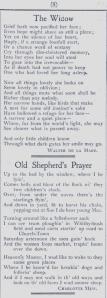
Read Full Post »




 fallen, and two young women are locked together in the grip of shared emotion. Tears are shed, words, exchanged, and a lovers’ quarrel or lovers’ misunderstanding is being intently addressed. One of the women is a noble of the viceregal court, in fact she is married to no less a personage than the viceroy of Mexico himself. The other is a nun and a poet.
fallen, and two young women are locked together in the grip of shared emotion. Tears are shed, words, exchanged, and a lovers’ quarrel or lovers’ misunderstanding is being intently addressed. One of the women is a noble of the viceregal court, in fact she is married to no less a personage than the viceroy of Mexico himself. The other is a nun and a poet. But since it is the nun who happens to be the gallant in this pairing, it is she who must minister to the other’s need.
But since it is the nun who happens to be the gallant in this pairing, it is she who must minister to the other’s need. vulnerary applied, the wound soothed and dressed and set well on its way to healing. Does the lover exist who who does not fervently long for this – For her lover to see what is worrying and disturbing her and to tenderly and gently administer the remedy?
vulnerary applied, the wound soothed and dressed and set well on its way to healing. Does the lover exist who who does not fervently long for this – For her lover to see what is worrying and disturbing her and to tenderly and gently administer the remedy? to pass peacefully. Complete healing is required, and not mere amelioration.
to pass peacefully. Complete healing is required, and not mere amelioration. Thomas did not even have to lift a finger to have his doubts and suspicions allayed, but that Christ had himself tenderly taken the hand of the doubter and placed it on the wound. The one with a greater wound heals the one with the lesser. Surely the lady, though married, possessed a vastly more ample freedom than the cloistered nun, and far less cause for jealousy. Nevertheless, she is the one who now receives the other’s care and comfort.
Thomas did not even have to lift a finger to have his doubts and suspicions allayed, but that Christ had himself tenderly taken the hand of the doubter and placed it on the wound. The one with a greater wound heals the one with the lesser. Surely the lady, though married, possessed a vastly more ample freedom than the cloistered nun, and far less cause for jealousy. Nevertheless, she is the one who now receives the other’s care and comfort. obstruction, applying the remedy, closing the wound, and then caring for the post-operative trauma of the patient.
obstruction, applying the remedy, closing the wound, and then caring for the post-operative trauma of the patient. moment, which may come years later, and cut and polish it and persuade it to reveal its inherent brilliance and glory in a setting of her apt devising. It demands seemingly mutually exclusive skills, those of complete immersion and complete objectiveness. But if not objective but still in love, at what pains was she to achieve the distance to create this accurate account and set it in a sonnet from like a gem in an elegant ring?
moment, which may come years later, and cut and polish it and persuade it to reveal its inherent brilliance and glory in a setting of her apt devising. It demands seemingly mutually exclusive skills, those of complete immersion and complete objectiveness. But if not objective but still in love, at what pains was she to achieve the distance to create this accurate account and set it in a sonnet from like a gem in an elegant ring?


































































































